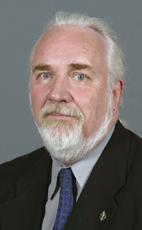Mr. Speaker, I would just like to make a couple of brief comments.
I rise to support Motion No. 342 brought forward by the member for Pictou—Antigonish—Guysborough. As he stated in his comments, I too attended the memorial last September on the Hill. I attended with the widow and the son of a member of the old B.C. highway patrol who was killed in the line of duty on his way to responding to a traffic incident.
I also remember some two decades ago, just after I moved into the area of Surrey, how a young RCMP constable was purposely drawn out of the police station by two people driving a car wildly. He was purposely drawn to them and was shot at point blank range as he walked up to the window of the car. These two people were convicted of first degree murder at that time and sentenced to death. The death penalty was withdrawn and, to the best of my knowledge, at least one of those persons was successful on a 745 application. However, this is not the time nor the place to debate that issue.
I think for most people in this country the most common contact with police officers is through speeding tickets and roadside breathalyzer tests. Fortunately, for most people, that is their only contact. However, I have a personal connection. Five and a half years ago there was an incident within my family and I was forced to deal with the police for about two years, on a very personal level. I saw their dedication and the honour these people work with and how diligent they are at their jobs, especially in the investigative process.
Since that time I have had many opportunities to ride along with the constables on the streets of my city, to see them work and to see what they are exposed to. I advise all members of this House and any member of the public who has a problem with the police to go out and spend a Friday or Saturday night on the streets of their community to see what policing is really all about. It is a lot more than just speeding tickets and roadside breathalyzers.
Fortunately, in most cases, police officers are not forced to put their lives on the line. They realize when they leave the house every morning to go to work that it is a possibility, but very fortunately for us and for them they do not have to always deal with it. However, occasionally they do and far too often, in my estimation, these people lose their lives and widows and families are left behind to suffer.
I speak in support of this motion because I think it is long overdue. There should be full public recognition and a recognition by this place and a day should be set aside to remember these people and what they have given for their country.

